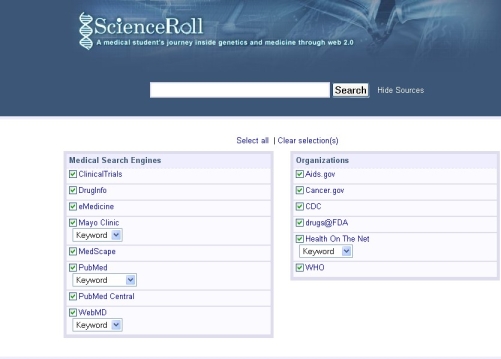Google already gives you the option to create your own search engine and to share it with others. Berci Mesko used another service to create the interesting search engine ScienceRollSearch:
"You can choose which databases to search in and which one to exclude from your list. It works with well-known medical search engines and databases and we’re totally open to add new ones or remove those you don’t really like."
Give it a try to see if it works for you.

The future may be elsewhere though. Instead of switching to another search engine and learning a new interface, most people may be tempted to use Google Subscribed Links and to stay within Google. The usefulness of the service is still limited at the moment but if Google expands it to cover more sites of your choosing, and to prioritize the results at the top, this could be more useful than checking several search engines with one query. I really like the way it shows the Epocrates subscribed link in the first few results when searching for medications.
References:
Personalized Medical Metasearch Engine. ScienceRoll.
Do you hate Pubmed? Here is the solution! ScienceRoll.
"You can choose which databases to search in and which one to exclude from your list. It works with well-known medical search engines and databases and we’re totally open to add new ones or remove those you don’t really like."
Give it a try to see if it works for you.

The future may be elsewhere though. Instead of switching to another search engine and learning a new interface, most people may be tempted to use Google Subscribed Links and to stay within Google. The usefulness of the service is still limited at the moment but if Google expands it to cover more sites of your choosing, and to prioritize the results at the top, this could be more useful than checking several search engines with one query. I really like the way it shows the Epocrates subscribed link in the first few results when searching for medications.
References:
Personalized Medical Metasearch Engine. ScienceRoll.
Do you hate Pubmed? Here is the solution! ScienceRoll.